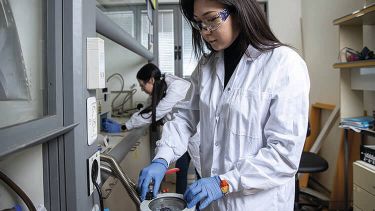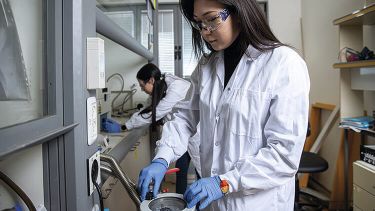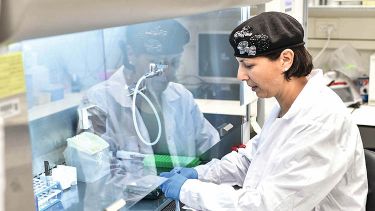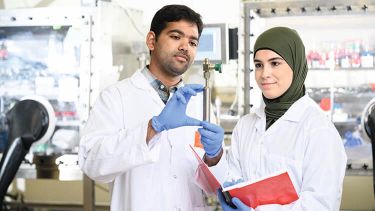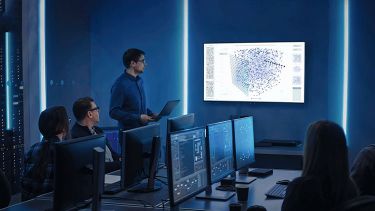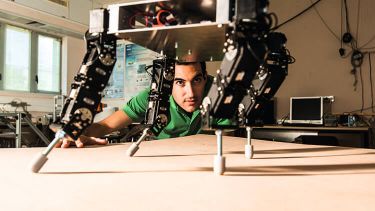
Searching for Earth-like planets might be the stuff of childhood dreams for most of us, but it’s the day-to-day reality for one of Ariel University’s post-doctoral fellows
Neither the Covid-19 pandemic nor the fact his wife was sixth months pregnant could deter Dr Volker Perdelwitz from coming to Israel. His mission? Beginning a two-year post-doctorate at Ariel University in his continuing quest to find as-yet-undiscovered exoplanets, which revolve around stars outside our solar system.
Dr Perdelwitz’s research follows in the footsteps of Swiss physicists Mayor and Queloz, who received the 2019 Nobel Prize for Physics for their 1995 discovery of the first known exoplanet to orbit a Sun-like star. Dr Perdelwitz is now taking their research one step further, searching for exoplanets that are Earth-like. “If a planet is too large, its composition is too gaseous, but if it’s too small, its atmosphere will be blown away by the star around which it revolves,” he says. “As far as we know at this point, Earth is the only planet that supports life, but we’re continuing our search.”
Since 1995, thousands of exoplanets have been found by the scientific community worldwide. Yet, scientists have so far been unsuccessful at determining if they’re truly like our Earth, due to interfering ‘stellar noise’. Dr Perdelwitz, together with his mentor Dr Lev
Tal-Or, is working on this problem precisely. “For now, we’d just like to know if life exists elsewhere in the universe, even if it’s only in the form of bacteria,” he says. “I’d consider that to be the greatest discovery of mankind.”
The Ariel University advantage
Dr Perdelwitz was born in Bergisch Gladbach, a small German town near Cologne, and grew up in Hamburg. As a young boy, he dreamed of becoming an archaeologist, but by the time he’d become a teenager, he excelled in mathematics. So, he decided to become a physicist instead. He spent much of his time studying particle physics, a branch of physics that focuses on the most minute forms of matter.
After graduating from Heidelberg University, he spent a year in Norway before completing his doctorate at the Hamburg Observatory. As a young astronomer, Dr Perdelwitz could then have chosen to move anywhere in the world, working remotely with data gleaned from space telescopes and instruments located in places like Chile, Hawaii and the Spanish islands. What made him choose to come to Israel? “My wife and I both wanted a change from European scenery, so we made a list of places we’d like to live, and Israel was at the top of the list, above the U.S. and South Korea,” he explains. “I contacted Dr Tal-Or, who I’d met when he was doing his postdoc in Germany. We were familiar with each other’s work, and he was forming a new group at Ariel University. One thing led to another, and I quickly decided to accept his offer to do my postdoc here.
“Ariel is a young university, with a vibrant research environment. I like the idea of being part of something new. Until now, I studied in older, well-established universities, where the wheels tend to turn much slower. Lev and I share the same dynamic approach to science.”
Dr Perdelwitz and his wife received a lot of help securing the authorizations for entering the country in July 2020, during the height of the Covid-19 crisis, enabling him to begin his postdoc on time. He’s very pleased with his experience in Israel and at Ariel University so far.
“There’s a very important advantage to choosing Ariel,” he continues. “Israel’s first scientific space telescope, ULTRASAT, is being built right now and is scheduled to be launched in 2024. It’s a perfect opportunity for me to get in on the ground level. I’ve been involved in other space missions that were 10-15 years in the planning, but this one is scheduled to launch in a couple of years. I feel fortunate to be in the right place at the right time.”

